Marine Science News
Whale Sharks Beware!
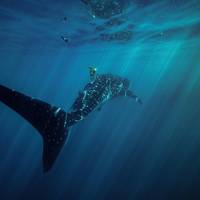
An international study has found whale sharks and ships are more likely to collide by the end of the century due to climate change.The researchers used global climate models and satellite-tracking data of 348 tagged whale sharks from 2005 to 2019 and combined it with shipping traffic models and habitat suitability estimates to predict the risk of interaction.Whale sharks are highly mobile marine megafauna that can travel hundreds or thousands of kilometers annually. The species…
Where Are the Hurricanes? Quiet Atlantic Bucks Forecast for 'Super' Season
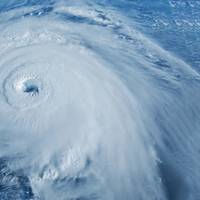
Forecasters earlier this year predicted that hurricane activity in the Atlantic Ocean could be supercharged in 2024. But the tropics have been abnormally quiet in recent weeks, often the busiest ones of the year.The Atlantic hurricane season, which officially spans June 1 to Nov. 30, started on a strong note. In early July, Hurricane Beryl became the earliest observed Category 5 storm, the strongest rating, breaking the record by more than two weeks.Next week marks the traditional peak of Atlantic hurricane season…
University of North Carolina Wilmington Orders Research Vessel from All American Marine
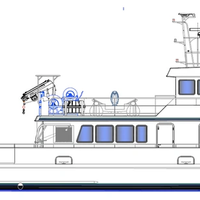
Bellingham, Wash. shipbuilder All American Marine (AAM) announced it has been awarded a contract to build a 73-foot research vessel for the University of North Carolina Wilmington (UNCW). The vessel will operate as a multipurpose research platform capable of conducting a wide range of scientific missions, including oceanographic surveys, biological studies and educational outreach programs along the Mid-Atlantic, U.S. East Coast and offshore waters.The 73’ x 26.7’ aluminum catamaran…
RRS Sir David Attenborough Begins Research Mission in the Southern Ocean
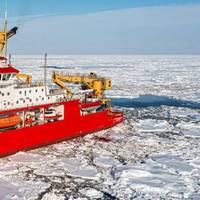
Scientists aboard Britain's high-tech polar research vessel RRS Sir David Attenborough are headed to the Weddell Sea to investigate how carbon dioxide moves and transforms in the Southern Ocean.The ship departed Tuesday from Punta Arenas, Chile for the 30-day scientific expedition.As the carbon in the seawater rises to the surface near Antarctica, it interacts with the atmosphere, ice, and microscopic plants and animals, called phytoplankton and zooplankton, near the ocean surface, before descending to the ocean depths.
Shipwrecks Teem with Underwater Life, from Microbes to Sharks
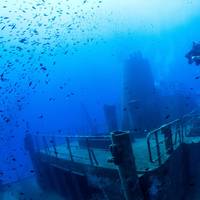
Humans have sailed the world’s oceans for thousands of years, but they haven’t all reached port. Researchers estimate that there are some three million shipwrecks worldwide, resting in shallow rivers and bays, coastal waters and the deep ocean. Many sank during catastrophes – some during storms or after running aground, others in battle or collisions with other vessels.Shipwrecks like the RMS Titanic, RMS Lusitania and USS Monitor conjure tales of human courage and sacrifice, sunken treasure and unsolved mysteries.
Mounting Evidence Shows Seismic Surveys Can Harm Marine Life
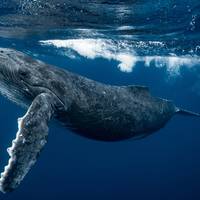
Woodside Energy last week announced it would start seismic testing for its Scarborough gas project off Australia’s west coast, before reversing the decision in the face of a legal challenge from Traditional Owners.Seismic testing is highly controversial in marine environments. Australia’s federal regulator (the National Offshore Petroleum Safety and Environmental Management Authority) is currently examining a proposal for seismic testing in the Otway Basin in Bass Strait, which conservationists say has attracted more than 30…
Sand Dredging is 'Sterilizing' Ocean Floor, UN Warns
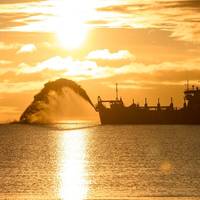
Around 6 billion tons of marine sand is being dug up each year in a growing practice that a U.N. agency said is unsustainable and can wipe out local marine life irreversibly.Sand is the most exploited natural resource in the world after water but its extraction for use in industries like construction is only loosely governed, prompting the U.N.
Global Conservation Mission Sets Sail from UK in Darwin's Wake
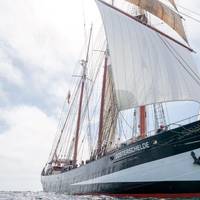
Almost two centuries after Charles Darwin's voyage around the world, environmentalists plan to follow in his footsteps by undertaking a two-year journey across four continents to study endemic wildlife and boost conservation.The group will set sail on board a 105-year-old schooner on Tuesday from the southern English port of Plymouth, from where British naturalist Darwin's own expedition began in 1831, leading him to develop the theory of evolution by natural selection.The 40,000 nautical mile "Darwin200" expedition hopes to anchor in 32 ports, including all the major ports visited by Darwin's
US Coast Guard Cutter Healy, Scientists Deploy Ice Stations
U.S. Coast Guard Cutter Healy (WAGB 20) crew and embarked researchers ventured onto a floe of multi-year ice for the first of three multi-instrument ice stations in the Arctic Ocean Basin late July and early August.As the Healy carefully approached and maintained position alongside an ice floe above 77 degrees north, the crew and a team of scientists, working in cooperation with the Office of Naval Research, (ONR) offloaded a diverse collection of equipment on to the floe carefully…
RRS Sir David Attenborough Gearing Up for First Antarctic Science Cruise
Britain's high-tech polar research ship RRS Sir David Attenborough is gearing up for its first Antarctic science cruise.Over the coming weeks, the crew and scientists on board the vessel will be carrying out a range of trials to test the ship's science equipment in both deep and shallow water around the Scottish coast. Among the tech to be tested are the vessel's moonpool, coring equipment and the ship’s workboat Erebus, all of which are critical elements of upcoming science missions.Erebus will be put through its paces with new equipment…
North American Lobster Industry Confronts 'Ropeless' Traps After Whale Entanglements
An emerging technology to fish for lobsters virtually ropeless to prevent whale entanglements is exciting conservationists, but getting a frigid reception from harvesters worried it will drive them out of business and upend their way of life.Injuries to endangered North Atlantic Right Whales ensnared in fishing gear have fueled a prominent campaign by environmental groups to pressure the industry to adopt on-demand equipment that only suspends ropes in the water briefly before traps are pulled from the water.The Monterey Bay Aquarium’s Seafood Watch…
Arctic Ocean Could Be Ice-free In Summer By 2030s, Scientists Say
The Arctic Ocean could be ice-free in summer by the 2030s, even if we do a good job of reducing emissions between now and then. That’s the worrying conclusion of a new study in Nature Communications.Predictions of an ice-free Arctic Ocean have a long and complicated history, and the 2030s is sooner than most scientists had thought possible (though it is later than some had wrongly forecast). What we know for sure is the disappearance of sea ice at the top of the world would not only be an emblematic sign of climate breakdown…
Threat to Whales Complicates US Research into Seaweed for Biofuel
In Cape Cod Bay, 10-year-old Pilgrim and her calf skim the water's glassy surface alongside the Shearwater research vessel to feed on tiny crustaceans.The two are among the last surviving 340 or so North Atlantic right whales left migrating along the U.S. East Coast – down from 480 right whales in 2010.The biggest threats they face include being struck by passing ships or getting entangled in ropes used for lobster fishing off the U.S. East Coast - scientists have recorded 98 such injuries or deaths of whales since 2017.Now, the whales face another threat as the U.S.
Florida Researcher Breaks World Record for Living Underwater
University of South Florida (USF) Associate Professor Joseph Dituri has broken the world record for living underwater, previously set at 73 days.Dituri is studying how the human body responds to long-term exposure to pressure from an underwater habitat located at Jules’ Undersea Lodge in Key Largo where he’s been living since March 1.His 100-square-foot underwater home has subjected him to an isolated and extreme-confined environment. With this new record, Dituri's officially reached uncharted territory for science, and he hopes his research may have far-reaching impacts, even in space.
NOAA, Coast Guard to Collect Data from a Great Lakes Icebreaker
This week, NOAA's Office of Response and Restoration (OR&R) scientists worked with the U.S. Coast Guard during ice-breaking in Lake Superior Harbor in Duluth, Minnesota, aboard the Coast Guard Cutter Spar. This project is the first set of experiments funded by the newly developed Great Lakes Center of Expertise.Teams from both Coast Guard District 9 and NOAA deployed uncrewed aircraft system (UAS) with multispectral, thermal and LIDAR sensors to collect data while the Spar was breaking ice in the harbor.
What Does Climate Change Mean for Extreme Waves?
In 80% of the world, we don’t really know.Across much of the world’s oceans, waves are getting bigger. In the Southern Ocean, where storm-driven swell can propagate halfway across the world to California, the average wave has grown about 20cm in the past 30 years.These changes are part of climate change, and are likely to continue well into the future. If you’re making long-term plans near the sea – like building ships, or constructing flood defenses in coastal cities – you need more detail about how big those waves are going to get.In a study published this week in Science Advances…
Lobsters Versus Right Whales
Lobsters versus right whales: The latest chapter in a long quest to make fishing more sustainableMaine lobster fishermen received a Christmas gift from Congress at the end of 2022: A six-year delay on new federal regulations designed to protect critically endangered North Atlantic right whales.The rules would have required lobstermen to create new seasonal nonfishing zones and further reduce their use of vertical ropes to retrieve lobster traps from the seafloor. Entanglement…
MBARI to Transfer Research Vessel to Florida Institute of Oceanography
MBARI revealed plans to grant its 25-year-old research vessel Western Flyer to the University of South Florida where the vessel will begin a new life as a sailing classroom for the university's Florida Institute of Oceanography (FIO).“We’re thrilled the Western Flyer will be sailing on to an exciting new chapter at the Florida Institute of Oceanography,” said MBARI President and CEO Chris Scholin. “The ocean plays a vital role in sustaining life on Earth. With the Western Flyer…
New Buoys Aim to Help Protect Whales from Ship Strikes
A network of acoustic monitoring buoys aims to help protect North Atlantic right whales—one of the world’s most critically endangered species—from ship strikes along the U.S. East Coast.Although North Atlantic right whales are protected under the Endangered Species Act and the Marine Mammal Protection Act, serious threats to their survival abound with only approximately 336 of these great whales remaining on the planet. The installment of the buoys aims to aid in right whale’s survival and will fill a critical gap in monitoring along the East Coast.
FerryBox: PONANT Exploration Vessel Collecting Arctic Ocean Data
PONANT’s new science-focused exploration vessel has started collecting Arctic Ocean data with -4H-JENA engineering’s FerryBox multi-parameter water measurement system on board.The system is now being used to evaluate the role of global warming and glacial meltwater on the rising level of oxygen in the oceans aboard PONANT’s Le Commandant Charcot, the world’s only luxury icebreaker, a hybrid-electric vessel powered by liquified natural gas.A unique concept with minimal environmental impact due to her green energy and propulsion systems…
4500 Years Old & 180km: World's Largest Known Plant Discovered in Shark Bay
Largest known plant on earth discovered at Shark Bay, and it's 4,500 years old.Researchers from The University of Western Australia and Flinders University have located what is believed to be the largest plant in the world – an ancient and incredibly resilient seagrass stretching across 180km that is estimated to be at least 4,500 years old.The discovery of the single plant or ‘clone’ of the seagrass Posidonia australis in the shallow, sun-drenched waters of the World Heritage Area of Shark Bay in WA…
The Ship that Found Antarctica’s Endurance Wreck is Vital for Climate Science
It was 1914 when the English explorer Sir Ernest Shackleton set sail on his Imperial Trans-Antarctic Expedition aboard a ship called Endurance. It was an ill-fated journey: the ship got trapped in the ice and eventually crushed by pack ice in 1915. It sank to the bottom of Antarctica’s Weddell Sea. (Shackleton and his entire crew survived the ordeal by escaping in smaller boats.)It was difficult to believe that the Endurance might ever be found. The icy Weddell Sea is inhospitable and the wreck lay in more than 3000 metres of water.
Maersk Vessels Transmit Live Weather Data to Meteorologists
Container shipping giant A.P. Moller - Maersk said it has teamed up with National Meteorological Service of Germany, Deutscher Wetterdienst (DWD) to install automated weather stations enabling a portion of its fleet to transmit live data to help forecast weather and climate.In the largest project of its kind, A.P. Moller - Maersk (Maersk) has installed automated weather stations (AWS) on 50 of its vessels creating a pulsating oceanic web of weather and climate observations. All collected data is transmitted live to the National Meteorological Service of Germany…
